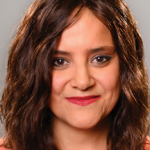The COVID19 crisis has hit the Arab region at a time when many economies have already been limping through a wide range of long-standing downturns, structural problems and fragilities. Following a series of large-scale protests in 2011 calling for economic and political reforms, countries such as Syria, Libya and Yemen have slid into civil armed conflicts and wars leading to destruction, high death tolls, and humanitarian and refugee crises which spillover into their neighbouring states. Egypt, Tunisia, Morocco and to a lesser extent Jordan have suffered episodes of political instability. Oil-dependent economies, such as Algeria, Saudi Arabia, Emirates, Bahrain and Qatar, have been struck by the 2014 oil price freefall a result of surplus supply and fading demand, from above $100 per barrel to under $30, a remarkably low price that many observers claim to be the new normal in oil markets. The Organization of Petroleum Exporting Countries (OPEC) has been exerting relentless efforts to cut oil production. However, it is unlikely that oil prices will recover anytime soon especially since the sharp drop in the demand for oil in the wake of the COVID outbreak on account of the global disruption in economic activity. These disruptions have resulted in negative oil prices for the first time in history. The COVID crisis is unprecedented in terms of the danger it poses to health globally. Most countries – including Arab countries - have instituted full or partial lock-down measures to save lives. But protecting human life has an economic cost in terms of slowed growth and productivity, massive job losses, enterprise closures and broken value chains. Micro, small and medium enterprises (MSMEs) account for over 95 percent of all firms in the region and provide a major source of new job creation (IMF 2019), occupying thus a central role in the economies of and livelihoods in the region. These MSMEs have been disproportionately affected by the double shock of COVID and declining oil prices. This paper examines these effects for Kuwait.

Research Fellows
Amirah El-Haddad
Senior Researcher, German Development Institute and Professor...


